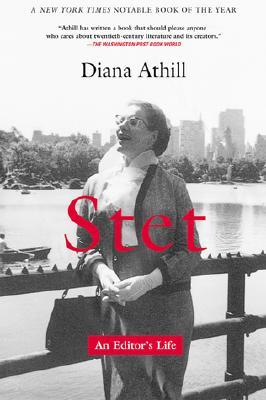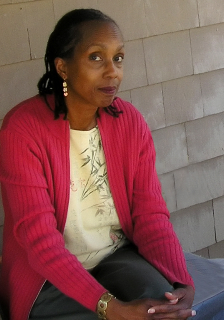When I came across a Twitter exchange between Allyson (@allysonlatta) and M. Summerfield Smith (@MarnieMemoirs) praising the work of Diana Athill, I felt I’d stumbled on kindred spirits who appreciated Athill’s rather old-fashioned approach to memoir writing.
Don’t get me wrong. I loved the travel memoir Eat, Pray, Love—its clever three-part overarching structure that perfectly mirrors the author’s physical journey, the story itself, Gilbert’s seemingly inexhaustible supply of apt similes; and the closing epiphany. Dani Shapiro’s memoir, Devotion, is another of my favorites. In it, Shapiro looks at the various spiritual practices she’s been a part of — from orthodox Judaism to so-called New Age practices — searching for release from her inexplicable fears in order to find the deeper meaning in her life.
These two books — what I’d call quest memoir — surely raised the bar for those of us who write memoir.
 But alongside quest memoirs are those that explore, yet seek nothing — neither salvation nor a prize. They simply and movingly examine a segment of a life, encouraging the reader toward insight into her own.
But alongside quest memoirs are those that explore, yet seek nothing — neither salvation nor a prize. They simply and movingly examine a segment of a life, encouraging the reader toward insight into her own.
Obsession plays a major role in quest memoirs, but as nonfiction writer and teacher Philip Lopate notes in To Show and To Tell, in nonfiction (including memoirs, of course), we want, “Not obsession but curiosity. . . . Nonfiction as a practice tends towards reason, calm, insight, and order.” Which perfectly describes Athill’s approach.
Current publishing conventions pressure memoirists to grab readers with a knockout image or suspense. Eat, Pray, Love opens with the frank desire for a kiss. Devotion presents a single anxious question: “I was fleeing something — but what?” But most of Athill’s memoirs make me feel quietly invited, rather than yanked, into her story. Yesterday Morning begins:
“‘Oh, my God,’ said my mother. ‘Can I really have a daughter who is seventy?’ and we both burst out laughing.
“She was ninety-two . . . but she still felt like the Kitty Athill she had always been, so it was absurd to have another old woman as a daughter.”
I already knew Athill hails from the English countryside, and I’m always up for a metaphorical jaunt in that pastoral place, so when I picked up this book I felt certain I was about to be led, gently, into a different literary country from my own, through the words of a thoughtful writer, editor, and woman. I liked being eased, rather than propelled, into her reality. I enjoyed ambling along beside a bright and ruminating mind.
Although Athill traveled during her lifetime, most of her books convey no sense of globe-trotting, no sense of her being on the lookout for anything, or trying to achieve, anything Big. No life quest. Written with what I think of as typical British restraint, her memoirs are personal but almost matter-of-fact. (An exception is After a Funeral, which begins, shockingly, with the announcement of a suicide to come.)
I don’t mean this to be a summary of Athill’s memoirs. What I want to say is that for me, memoirs, if well written, don’t have to open with a splash or take me on a fast ride to a big ending.
One of my favorite memoirs is Fierce Attachments, Vivian Gornick’s book about her life as a native New Yorker who struggles with her mother, with men, and with her writing. Its pages are punctuated by the challenging pulse and personality of that unconquerable metropolis. In Eat, Pray, Love, Gilbert gets the guy. But Gornick’s memoir ends on an almost audible sigh of resignation, as the narrator and her dissatisfactions — her making do and doing without — settle back in, unabated, unsolved, unresolved. There is no real coming to terms with anything.
Toward the end of Athill’s memoir Instead of a Letter, in opposition to the achievement, energy, and optimism at the end of Eat, Pray, Love, Athill reflects on what she didn’t do, rather than what she accomplished in her life. No doubt because of her advanced years, she’s simply trying to meet and express gracefully the challenges of aging — oh, but what elucidation and comfort she provides along the way.
What memoirs have given you this same quiet but deep satisfaction and insight? Please share a comment below.
If you enjoyed this post, you might like In Need of a Neat Conclusion? also by Lynette Benton.
♦ ♦ ♦
 LYNETTE BENTON is a published writer, writing instructor, and editor. She has written two memoirs, both currently in the editing phase. She lives in Boston.
LYNETTE BENTON is a published writer, writing instructor, and editor. She has written two memoirs, both currently in the editing phase. She lives in Boston.

Lynette,
You’ve climbed into my head and given me relief from agonizing over NOT getting on with writing my memoir. What you said makes sense to me.
“Current publishing conventions pressure memoirists to grab readers with a knockout image or suspense.”
I haven’t lived a “Jeanette Walls” life. Much tamer. I’ll keep in mind that I can invite thoughtful readers to ease into my memoir, not propel them off a cliff into heartbreak.
Allyson attracts thoughtful readers and writers. So glad she posted your thoughts on memoir.
Thanks for your comment, Mary. Continue writing your memoir. You’ll have readers like me in your camp. No car chases necessary!
Write on.
It is delightful to meet Lynette Benton here, Allyson. I so agree with her thoughts about the Memoir as an elucidating path into the human condition; how it’s the quiet and personal revelations of others that can often lead us deeper also into ourselves…. I’ve read Diana Athill and so enjoyed her honesty and spunky humour; it’s lovely to be reminded of her work here, and to be nudged to search it out again. Thank you.
Barbara, Whenever I reread any of Athill’s memoirs, I find something I somehow overlooked in the previous reading, feel enlightened once more. I believe that’s what a good memoir (or any book, for that matter) should do. Open our eyes anew each time we read it.
Enjoy your Athill reading and rereading.
Wonderful reflections on memoir, Lynette. Fierce Attachments is one of my favorites too. I think what sets apart memoirs that are powerful and resonate has a lot to do with the honesty with which the author writes–not so much to impress the reader with a powerful experience, but honest searching and reflection. I find this quality in Gornick’s book (you can really feel her anguish, desires, and searching in so many situations). It’s also a major draw in Wild by Cheryl Strayed. The Road from Coorain is a quiet memoir, but we’re so immersed in the author’s reflections on her parents and their lives trying to make a living in the wilds of Australia, the challenges of such a rough life, (without a trace of self-pity or whining), that we feel we’re living it with Jill Kerr Conway. Thank you for these well-crafted thoughts.
Thank *you*, Linda. You’ve hit on it: “honest searching and reflection.” That’s the quality that makes a memoir memorable and satisfying. I can tell you that as I rewrite my own memoirs, I will be referring to your comment above, including “without a trace of self-pity or whining”.
Like you, I enjoyed Wild, and truly loved The Road from Coorain. The moment I finished the latter, I began again at page 1, without even leaving my seat.
We share a love for the same kinds of memoirs, obviously. So many to like, but so many that seem to think just having an experience is writing about it–without the reflection. Always my pleasure to read your work.
Lynette, Thank you for a lovely, inviting post. I would add any of the late-in-life memoirs of May Sarton. I discovered her as I was beginning my own memoir writing journey, At Home On the Kazakh Steppe (also in final edits). You’ve offered many new authors I now want to explore (except Elizabeth Gilbert. Sorry, but her Eat Pray Love felt contrived). But Athill, now there’s a life that seems anything but contrived. Thank you.
Thanks so much for commenting, Janet. I too enjoyed May Sarton’s memoirs. Perhaps, best not to read biographies about her, though. According to *them* she spent her energies constructing a persona to be used in her writing that bore little relationship to her real self. Hope that’s not true.
I’ll be looking out for your memoir when it’s completed.
Lynette, this woman’s face reflects her soul and I look forward to reading more from her. Thank you but I did not like Eat Pray Love and perhaps I’m old fashioned, but I found the book and the movie, too, superficial and lacking in any kind of spirituality. If I reread it I may change my mind, that’s happened before. It’s a pleasure to read this thoughtful post from you, Lynette.
Thank you, Kenna, for your honest comment! We don’t have to like the same memoirs as others, just be connected through our love of the genre. Please feel free to share the titles of memoirs you enjoyed. I’m always looking for new ones. (By the way, I very much liked “3 Dog Life, by Abigail Thomas. Do you know it? The story is incredible.)
I enjoyed reading the post and meeting Latta and Athill — will definitely read her memoir. Your views are always insightful. So many people have stories to tell and memoirs to write. With or without the splash and knock out punch, I like to read them all.
I love the way you phrased that, Sue. The “splash and knockout punch.” Exactly.
Excellent post. Have you ever considered that not only writers need to hear what you have to say….but that just plain ol’ readers have a lot to learn about memoirs also? I am a good example. I found it fascinating to learn these perspectives about memoirs, and at the same time, I ALWAYS run out and purchase any books you say you enjoyed. Take Devotion, for example, I already read it twice and I’m probably cooking towards a third time. It’s fun to learn a new way of looking how these authors write and reading the books again with a new take. I always love your posts and your writing style. There is a subtle cynicism sometimes that I get a real kick out of. Keep writing.
Dear Lynnette ~
I just found out about your blog on Twitter and love the way you think and the content of what you write. I agree that Gornick’s memoir is powerful and compact. I also like “This Boy’s Life,” and Mary Karr’s memoirs, especially, “Lit.” The list is endless.
Are any of your memoirs published? If you are interested, check out my website and blog, http://www.dianaraab.com. I have two published memoirs, Healing With Words and Regina’s Closet. Let me know if you’d like me to send review copies.
Warm wishes,
Diana
Hi Diana. I’m off to see your web site and blog right now. Thanks for letting me know about them. Major congrats on your memoirs; mine are still in the editing and rewriting phases.
What a lovely post, beautifully written in a restrained yet engaging style worthy of Athill. One of my favourite memoirs, bot mentioned yet in the comments, is Hilary Mantel’s Giving Up the Ghost, a book that Carol Shields said “combines the urgency and observation that steer a memoir into the heart of a reader’s own experience”. Of course, Mantel is more famous for her double Booker win but I loved her memoir more than her novels.
I’d just sat down at my computer to work on tweaking what I hope is the final draft of my memoir. But I decided to read Allyson’s post first where I encountered Lynette’s post. How encouraging to know that quiet and gentle memoirs have their place. I’ve doubted my writing for years after reading Jeanette Wall’s and Mary Karr’s memoirs.
I loved reading this essay and now turn to my “tweaking” with renewed energy.
Thank you!